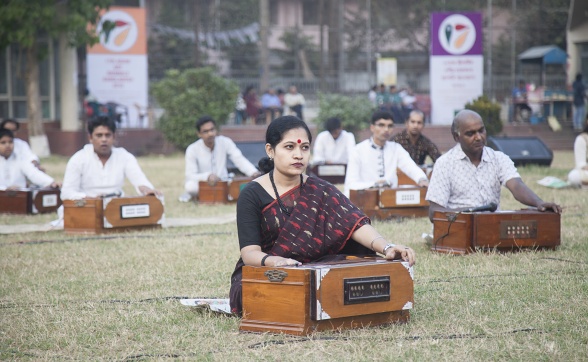Reetu Sattar and the Lost Tune of the Harmonium
Posted on 1 February 2018 by Liverpool Biennial
Reetu Sattar, HARANO SUR (lost tune), 2016
The sound of the harmonium is tightly woven into the history and culture of Bangladesh, but for artist Reetu Sattar, it is not just an instrument. In her performance piece HARANO SUR (lost tune), she uses it as a way to explore the violence and social upheaval which has affected her home country in recent years. Brought to life by 65 participants at the 17th Asian Art Biennial, the work is presented again at Dhaka Art Summit and Liverpool Biennial 2018, as part of the New North and South programme. We spoke to Sattar to discover the story of this humble instrument and understand why it’s so important to her.
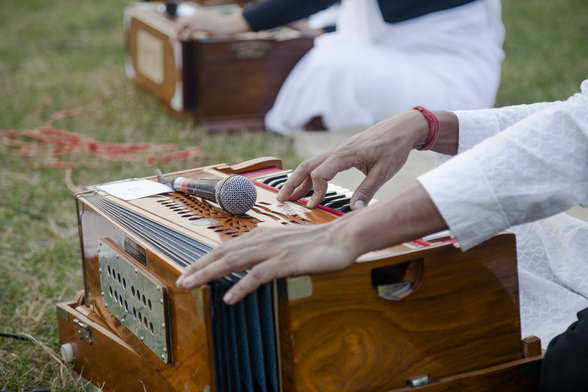
Reetu Sattar, HARANO SUR (lost tune), 2016
Lost Tune talks about loss of tradition...
... and how difficult it is for certain traditions to flourish in this globalised world, in a country like Bangladesh. The last time I performed it in 2016, it came after about one and half year’s silence, because during that time in Bangladesh, people were being brutally killed in their own houses because of their writings. Young bloggers sought asylum to Europe. Some of those people I’d actually known, and were friends. Avijit Roy, for example, was killed. The only reason he came to Dhaka was because of the Ekushey Book Fair, which is a very important event in the city. He was killed on the road side, beside the fair.
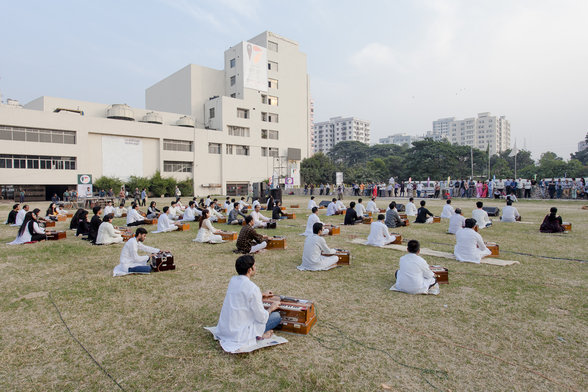
Reetu Sattar, HARANO SUR (lost tune), 2016
After this, everyone was telling me not to do the performance. It wasn’t a good time.
But I live on my instinct a lot. I’m more often an instinctive artist than a technical craft lover. So, I first did this work with nine small children, who were the children of rehabilitated sex workers in Calcutta. I was leading this workshop and I asked them, ‘do you think you could manage this by tomorrow?’, because I had other performances to do as well. They said ‘Yes!’, and they just managed it.
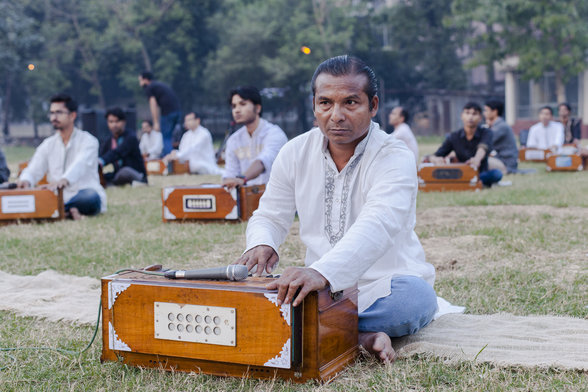
Reetu Sattar, HARANO SUR (lost tune), 2016.
The moment I saw those nine harmoniums in the corner of the room, ready for the performance, I thought ‘this will be really difficult in Dhaka'.
I thought this because it triggered in my mind that I hadn’t listened to any sound of the harmonium in a neighbourhood, or a building, or an apartment block for a long time. I grew up with this instrument, just like those in the UK grew up with the piano. It’s a simple thing in a household, where children learn some notes, but then they forget. Now, the place of the harmonium has been taken over by the keyboard for musicians, but there are no household musical instruments anymore.
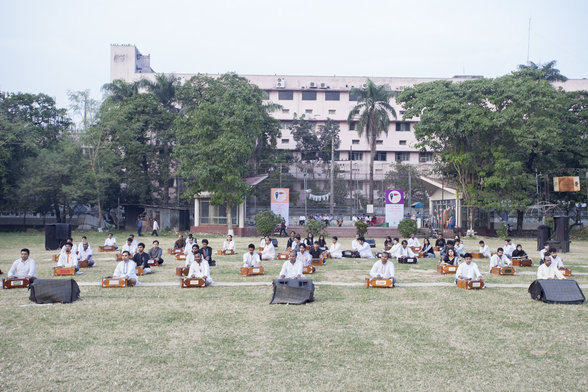
Reetu Sattar, HARANO SUR (lost tune), 2016
When I started my research for these performances, I thought ‘Oh my god...
... the scenario has completely changed over the last 15 years.' Modernity is now a globalised world and so traditions find it hard to flourish, because young people and musicians are more keen to learn the guitar. It's totally changed. Young people are coming from very small villages and reading at very non-important educational institutions. They’re not confident. They’re not social. While the older generations are more classic and they know their craft well. They are just doing it themselves on a government radio or TV channel, which most people don’t listen to. They’re playing a harmonium, singing old songs and wearing a Punjabi. I don’t think it’s in the here and now.
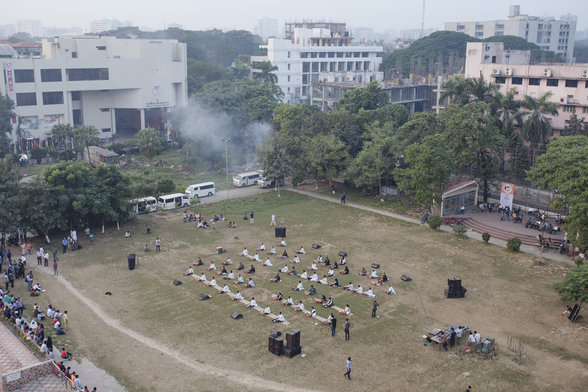
Reetu Sattar, HARANO SUR (lost tune), 2016
As an artist, I decided to bring these musicians together as a minority group, because that’s another facet to the work: partition.
In Calcutta, there was a big migration from Bangladesh because of power struggles, so they had to leave. They’re missing their home country a lot, but, just like the harmonium, they all travelled there. Here, the majority of Muslims are in a transitional period. They’re not sure whether to bring their music practice, or whether their children should practice music, so the harmonium becomes this symbol of partition also.
At Dhaka Art Summit, I am re-enacting this performance, but this time it features a structure. It says that this tradition has always been there, but now we are imagining it in an edgy form. So we’re not defining it as a tradition anymore. We’re saying, ‘I belong, I stay, and I talk, so I’m here.’ That’s how I am. Take me or leave me.
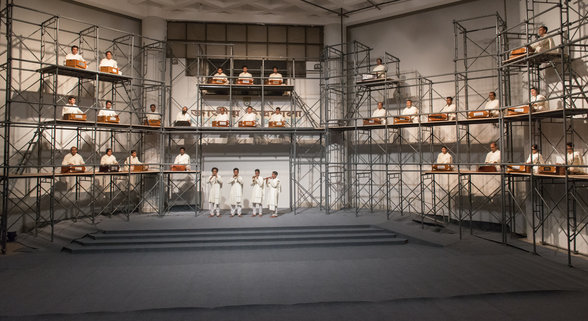
Reetu Sattar, HARANO SUR (lost tune), 2018. Performance view at Dhaka Art Summit 2018
Reetu Sattar is commissioned by Liverpool Biennial and Dhaka Art Summit, as part of the New North and South programme. Sattar's work will be presented at Liverpool Biennial 2018: Beautiful world, where are you?, running from 14 July – 28 October.
Liverpool Biennial
55 New Bird Street
Liverpool L1 0BW
- T +44 (0)151 709 7444
- info@biennial.com
Liverpool Biennial is funded by
Founding Supporter
James Moores
